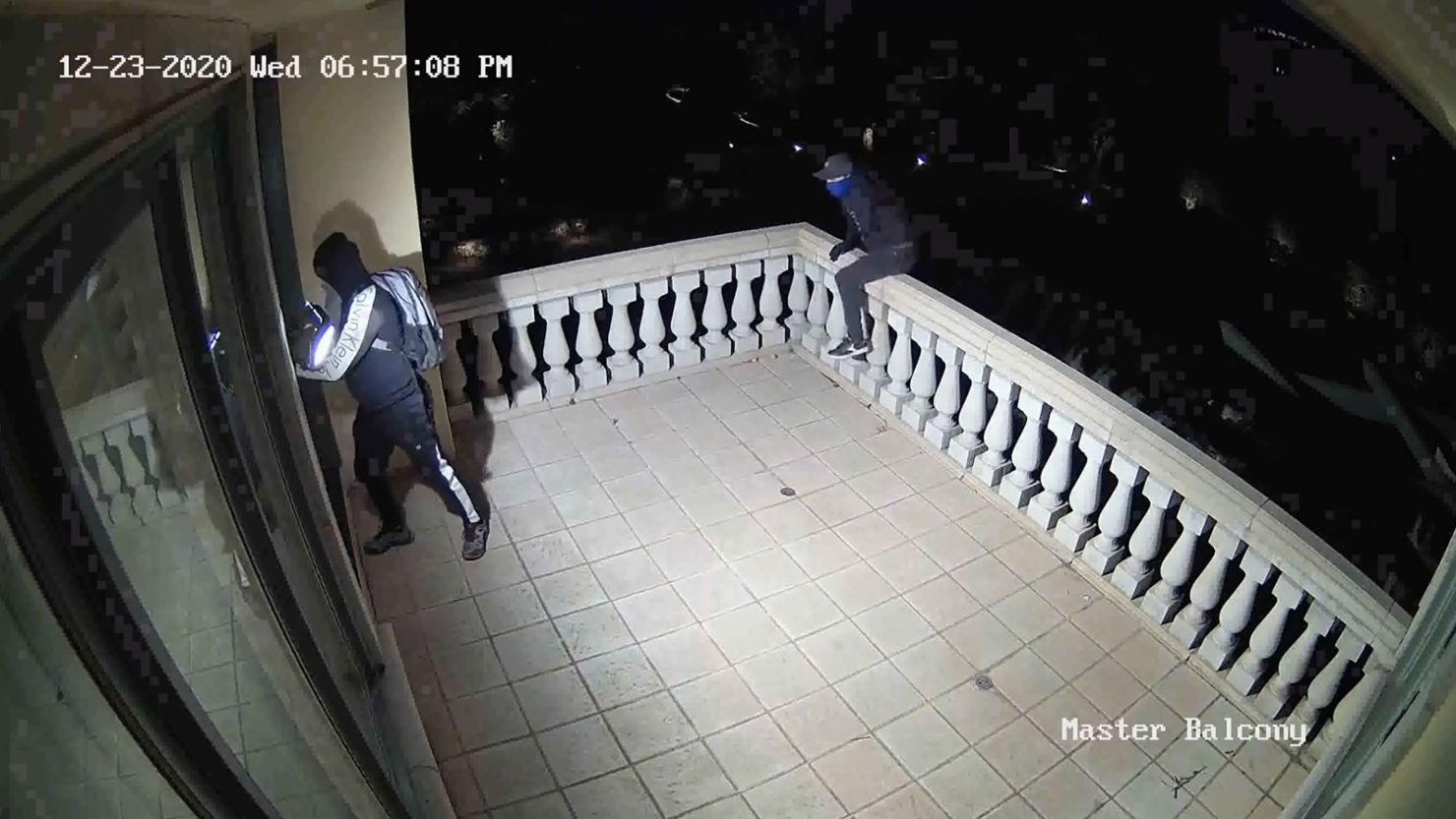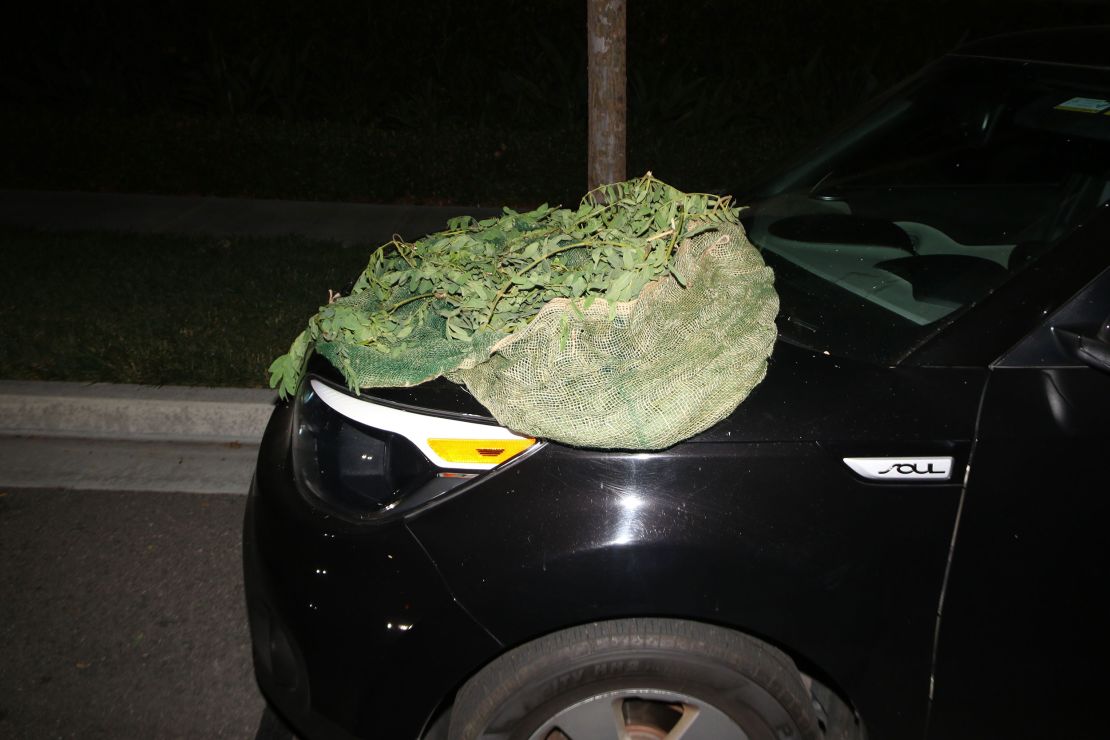
Carol and Jeff Starr celebrated their daughter’s wedding last month with a bit of irony: neither was wearing their own wedding rings at the ceremony. Thieves had broken into their Southern California home last spring and cleaned out a safe full of jewelry.
“They hit the jackpot,” Carol Starr told CNN.
The couple had locked their own rings in a 6-foot-tall safe, where they also secured heirloom jewelry passed down from Carol’s late mother.
Orange County, California, prosecutors allege a group of thieves hid in the hillside adjoining the Starr’s home, watched them leave with visiting relatives, and made their move.
“They came over our fence, they broke through a window in the upper bedroom and came through that window,” Jeff Starr told CNN. “And then immediately started working … on the safe.”
“You don’t feel safe in your own home anymore,” said Carol Starr, who is thankful no one returned home during the burglary. “I get so emotional and so mad when I think about what could have happened.”
Prosecutors say the break-in is part of a larger issue in which so-called “burglary tourists” enter the United States from countries that qualify for visa waivers, allowing a visit of up to 90 days without a traditional tourist visa. When the suspects arrive – most often from South America, prosecutors say – they join sophisticated burglary rings that prey on luxury homes.
In some cases, the suspects “lie in wait in these ghillie suits so they remain camouflaged,” said Orange County District Attorney Todd Spitzer. “They take advantage of the fact that most people don’t have window sensors or motion detectors on their second floors. They have WiFi jammers to stop the alarm company from being notified.”

Spitzer said the stolen goods are often sold quickly and the money is sent back to the suspect’s home country. Most often, that’s Chile, he said, which is now the only remaining South American country that qualifies for the Department of Homeland Security’s waiver program, known as the “Electronic System for Travel Authorization,” or ESTA.
The problem extends beyond California. Last month police in Scottsdale, Arizona, reported they arrested three Chilean nationals in connection with what authorities called a “burglary series” in the city.
Within the last year, police in Baltimore, Maryland; Raleigh, North Carolina; and Nassau County, New York, were among those announcing arrests in cases of luxury home burglaries linked to Chilean nationals in the US on visa waivers.
While there is no formal tally of the number of crimes committed by “burglary tourists,” the number appears to be, at minimum, in the hundreds. Ventura County, California, alone attributed 175 residential burglaries to “transnational theft groups” between 2019 and mid-2023.
“Not all Chileans are coming to the United States on this 90-days tourist program … not all of them are committing crimes,” Scottsdale Police Chief Jeff Walther noted in a March news conference. “I’m not saying that they are … But what we’re getting is hundreds, hundreds if not thousands coming in through the visa waiver program that are committing residential burglaries in dozens and dozens and dozens of cities and neighborhoods around the country. This is not a Scottsdale issue, this is not a Valley issue, this is not an Arizona issue. This is a national issue.”
Walther added: “We have to be willing to start asking some hard questions of our federal government about the visa waiver program.”
Seeking answers from South America
Rama and Balakrishna Sundar built their dream home overlooking the ocean in Dana Point, California. After alleged “burglary tourists” broke in through a bedroom window last year, they are trying to re-build their peace of mind.
“We want to move away from here and I don’t feel very secure at all,” Rama Sundar told CNN.
The burglars also took a sledgehammer to an elevator door, perhaps thinking a safe was behind it, Balakrishna Sundar said. When the alarm company was notified, the burglars fled with nothing valuable. The suspects were Chilean nationals, and at least one of them was out on bail for another crime, according to a complaint filed in Orange County.
Spitzer, the district attorney, has been a vocal critic of Chile, claiming it isn’t releasing background information on those granted visa waivers, which hinders prosecution here in the US.
“If we don’t know the criminal background of these individuals … then we can’t tell the judge anything or represent anything about the background,” he said. “Which means the person is released on no bail and they never come back again to answer for the charges.”

The Chilean government did not respond to CNN’s request for comment.
The Department of Homeland Security’s website says the waiver program is vital for “expanding economic and cultural ties.”More than 40 countries qualify for the program.
In a statement to CNN, the department acknowledged it is “deeply concerned with some individuals who travel to the United States and engage in criminal activity,” but adds “Chilean officials have responded by improving operational cooperation with DHS to prevent travel … by known criminal actors.”
The agency also noted it is expediting biometric information sharing between the US and Chile that, once fully implemented, will give US officials access to the criminal histories of travelers.
In March, Spitzer sued the US State Department, demanding to see the details of a bilateral security agreement for preventing and combating serious crime that it signed with Chile in July.
“Where’s the proof in the pudding?” said Spitzer. “How come we’re not seeing a significant diminishment of these burglaries?”
The Sundar family also questioned the level of urgency on this issue in Washington.
“I want a politician to go through this experience and he may feel exactly as I feel,” Balakrishna Sundar said.
“They’re supposed to help us,” his wife added. “It’s very annoying and disturbing.”
Source: CNN.com










